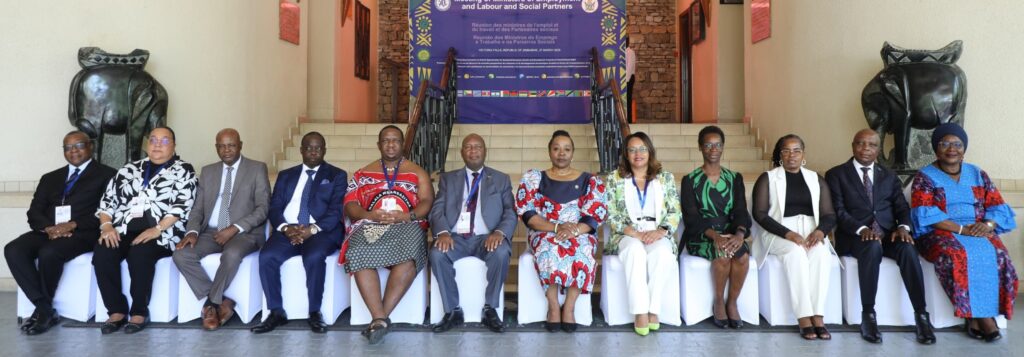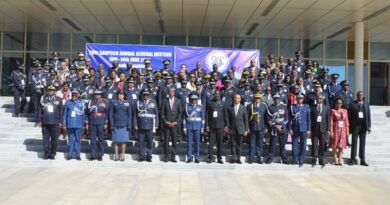Job Creation Takes Centre Stage at SADC Ministers’ Meeting in Zimbabwe
Job creation and employment policies dominated discussions at the annual SADC Ministers of Employment and Labour and Social Partners meeting, held from March 27-28 in Victoria Falls, Zimbabwe. The high-level gathering brought together labour ministers, private sector representatives, and trade union leaders to address pressing employment challenges and advance regional labour policies.
Zimbabwe’s Minister of Public Service, Labour and Social Welfare, Honourable Edgar Moyo, officially opened the meeting, reaffirming SADC’s commitment to socio-economic development and poverty eradication.
He emphasized the need for pro-employment strategies in agriculture and mining, advocating for National Employment Policies (NEPs) that align with broader economic frameworks. He also called for enhanced regional cooperation in sharing best practices to address unemployment.
SADC Deputy Executive Secretary for Regional Integration, Ms. Angele Makombo Ntumba, expressed concern over the worsening employment situation in the region and stressed the urgency of developing coordinated employment strategies. She highlighted the persistently high youth unemployment rate and underscored the importance of Technical and Vocational Education and Training (TVET) programs.
She also urged the adoption of digital solutions to modernize TVET delivery and align training with emerging job opportunities. On labour migration, she acknowledged progress in migration governance, particularly in ethical recruitment practices, and reaffirmed SADC’s commitment to supporting Member States through capacity-building and resource mobilization.
During the meeting, ministers and social partners endorsed several key resolutions. They urged Member States to implement comprehensive NEPs aligned with national development plans and macroeconomic policies, with dedicated budget allocations to ensure success. They also approved the establishment of a SADC Labour Market Observatory (LMO), with Botswana and South Africa commended for launching national Labour Market Information Systems.
Another key outcome was the endorsement of the Revised SADC TVET Strategic Framework (2025-2034), aimed at enhancing youth employability through closer collaboration between training institutions and industries. The framework will be further reviewed by the SADC Ministers of Education in June 2025.
Labour migration governance was also a priority, with plans to enhance regional cooperation through a Joint Meeting of Chiefs of Immigration and Labour Commissioners. Member States were encouraged to establish dedicated labour migration coordination structures to streamline migration policies.
To improve labour relations, ministers approved the creation of a SADC Employment and Labour Sector Forum on Labour Relations in the Public Sector to promote the harmonization of employment laws across the region. They also requested further consultations on establishing a SADC Public Service Commissions Forum.
The meeting also focused on upholding international labour standards, with Zambia praised for ratifying ILO Convention No. 190 on workplace violence and harassment. Other Member States were urged to expedite ratification of key occupational safety conventions and strengthen national labour laws with technical support from the ILO.
Angola was recognized as the first country to ratify the SADC Protocol on Employment and Labour (2023), which establishes a regional framework for decent work and employment cooperation. Other countries were encouraged to finalize their ratifications by 2026. Additionally, the ministers endorsed Zimbabwe’s candidacy for the presidency of the 113th International Labour Conference, scheduled for June 2025 in Geneva.
The two-day meeting concluded with a working visit to the Zambezi Crocodile Farm, where delegates observed Zimbabwe’s labour protection and workplace safety practices in the agriculture sector. The visit highlighted the importance of decent work conditions in boosting labour productivity and economic sustainability.
Thirteen SADC Member States, along with representatives from the SADC Private Sector Forum (SPSF), the Southern Africa Trade Union Coordination Council (SATUCC), and international organisations such as the International Labour Organisation (ILO) and International Organisation for Migration (IOM), participated in the meeting.



